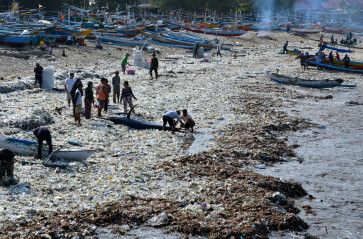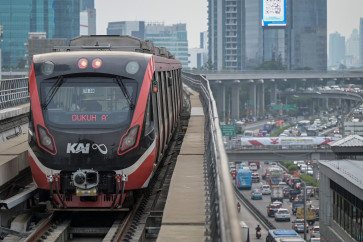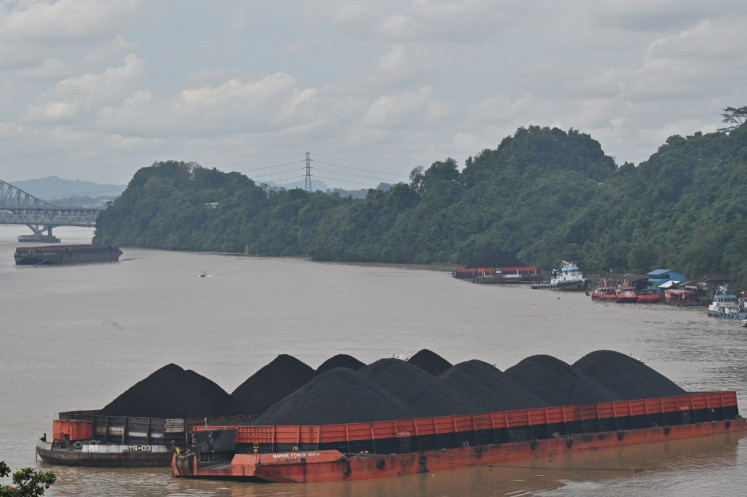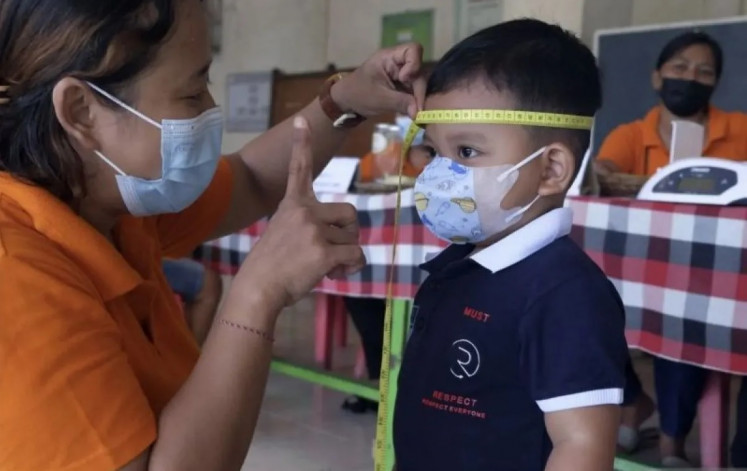Insight: President Obama and Indonesia-United States relations
Congratulations the United States
Change text size
Gift Premium Articles
to Anyone

Congratulations the United States. For the first time in more than 230 years of American history, an African American, Barack Obama, is installed as president of the United States. All Americans should be proud. There is so much euphoria, and so many expectations have been placed on president Obama’s shoulders. This is not only the case in the United States, but all over the world. This pressure has been building since he was elected last November.
The problems and challenges that Obama now faces and must solve – including the economic recession, wars in Iraq and Afghanistan, the Palestine-Israeli conflict, Iran and North Korea’s nuclear proliferation, social security and healthcare issues -- are tremendously difficult and complicated.
Many Indonesians have high hopes that a special relationship can be forged with the United States. After all, President Obama was a presidential candidate that Indonesians could relate to. During his last trip to Washington DC for the G20 Summit, President Yudhoyono proposed a “strategic relationship” between the United States and Indonesia. But it is not clear what this exactly means, as Indonesia is also developing strategic relationships with other countries, and each relationship is different.
Indonesia should be patient and understand that president Obama must prioritize the overwhelming troubles facing him on his home front. We believe that Indonesia has a special place in his heart, but as US president he has to face many crises and emergencies; first and foremost in the US, but also in other parts of the world.
The economic crisis in the US and its impact on the world is the most pressing matter, and no less so for Indonesia. If the US economy can recover soon and begin to grow, other nations’ economies will undoubtedly follow suit.
For Indonesia, the big question is what do we expect from the relationship with the United States, and what are we expecting from Obama’s presidency? To be forthright with ourselves, we should admit that we have always been ambivalent toward the United States.
On the one hand, we welcome US presence in Southeast Asia because the region wishes to maintain the freedom to be able to make independent policies and this freedom requires the backing of powerful countries. On the other hand, in the eyes of our elite and the public, the United States is a unilateralist power. And in many regions, especially in the Middle East, she has been too tilted against Muslims in the Israel-Palestine conflict. However, if our relations were stronger, we would be more able to influence American foreign policy.
Thus, we have to make up our minds about what to expect from the United States in terms of foreign relations and our national interest. We have to be pro-active in formulating a clear understanding of our attitude toward the United States. We need to convince the US that some policies affect both of our nations.
Perhaps there will be only one possible golden opportunity for our nations to strengthen our ties in the next four years; that being during a possible visit by Obama around the time of the APEC Summit in Singapore in November this year. We must be prepared in order to get the most out of the visit.
We should stress the importance of free trade to Indonesia and the region and cooperate to strengthen the open global trading system. We should also argue that protectionism will only deepen the global financial crisis, and we should show that we also can restrain ourselves from resorting to protectionism.
We should also cooperate in the G20, especially by representing the concerns of developing nations, and push for a reform of global financial institutions.
We should underline the importance of US assistance in education and training to help prepare for our next leaders, as was the case in the 1950s and 1960s with the successful University of Berkeley and University of Kentucky programs. We should also pay more attention to the training of our military officers, and attempt to regain the rapport that our militaries once shared, although this time our side will also be a democracy.
Democracy is critical to Indonesia’s unity, development and well being, and greater assistance, support and training for political parties and civil societies are of critical importance to Indonesia’s future. Priority should be given to the training of local bureaucrats and politicians and civil workers.
Regular bilateral dialogue between the two executive branches is necessary for a relevant cooperation and must be well prepared by the two nations’ under secretaries. Such talks could benefit the countries’ political, economic and military ties. But for such goals to be met will require hard work in the next 10 months.
The world and Indonesia are waiting to see what president Obama will do differently. The policies of the second Bush administration were more palatable under secretaries Rice and Gates, and can be improved on by Obama, but it is the breath of fresh air brought
by his style, openness and sincerity that will be most appreciated by Americans and the world.
The writer is vice chair of the board of trustees of the CSIS Foundation in Jakarta.









